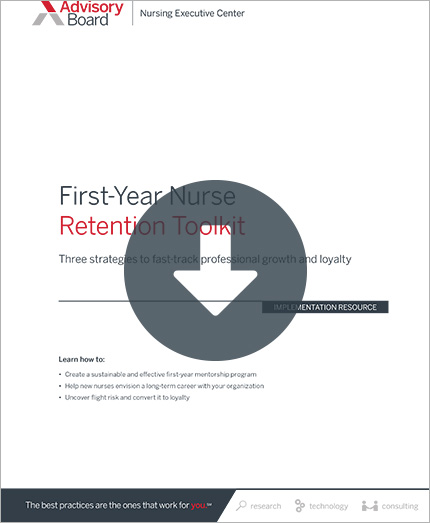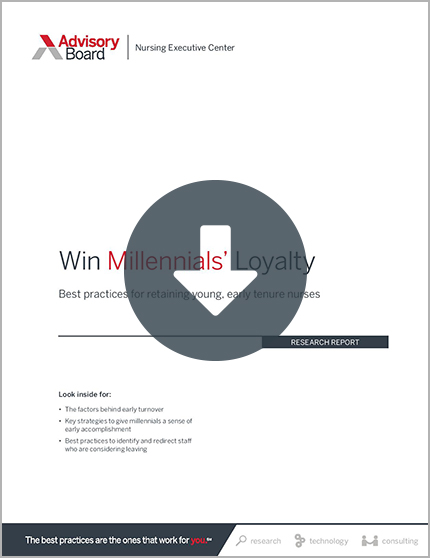Auto logout in seconds.
Continue LogoutAbout the survey
For the report, which Medscape released Wednesday, the publication surveyed 10,284 nurses, including:
- 5,011 RNs;
- 2,006 nurse practitioners (NPs);
- 2,002 licensed practical nurses (LPNs);
- 501 clinical nurse specialists (CNSs);
- 389 nurse midwives (NMs); and
- 375 certified nurse anesthetists (CRNAs).
Nurse's job satisfaction
Overall, the vast majority of nurses at every position were satisfied with their jobs. NMs, CNSs, and CRNAs all reported 98% job satisfaction, while NPs, LPNs, and RNs had satisfaction rates ranging from 94% to 96%.
However, when asked if they would choose the same career all over again, even though the vast majority of nurses are satisfied with their career, a smaller share of nurses said they would choose nursing as a career again. Between 12% and 24% said they would not choose nursing as a career again.
The survey also found that only 28% to 38% of nurses would choose the same practice setting if they were to do over their career.
Among nurses who were dissatisfied with their careers, many said they planned to pursue another path within nursing, including 25% of RNs and 31% of CNSs. Almost one-quarter of CRNAs said they would retire earlier than they planned, while 20% of RNs said the same. At 16%, LPNs were the most likely to say they would leave nursing as a whole and seek other employment.
Most (and least) rewarding aspects of the job
When asked what the most rewarding aspect of their job was, most nurses said helping people and making a difference in people's lives. However, for CRNAs, respondents were split between helping people and working to the full extent of their education, certification, and licensure.
When asked what the least satisfying aspect of their job was, most nurses said workplace politics, followed by their amount of paperwork.
Preparedness for retirement
When asked about retirement, the majority of each specialty of nurse, with the exception of RNs and LPNs, said they were financially prepared for retirement.
The survey also found that most nurses received little help or guidance as they neared retirement, with the majority of nurses reporting they did not receive reduced hours, less physically demanding work, or guidance on retirement planning.
"Employers looking to replace their older nurses with far cheaper new-graduate nurses have little incentive to help nurses stay on the job," the authors of the report wrote (Frellick, Medscape, 1/24; Stokowski et. al., Medscape Nurse Career Satisfaction Report 2018, 1/23).
How to attract millennial nurses—and keep them happy
In 2016, millennials surpassed Baby Boomers as the largest living generation in the United States. As more millennials have entered the nursing workforce, health care leaders have confronted a growing challenge: young nurses are turning over at higher rates than their older peers, especially early in their careers.
Use the strategies and best practices in this study to build a millennial-specific retention strategy for your organization.
Don't miss out on the latest Advisory Board insights
Create your free account to access 1 resource, including the latest research and webinars.
Want access without creating an account?
You have 1 free members-only resource remaining this month.
1 free members-only resources remaining
1 free members-only resources remaining
You've reached your limit of free insights
Become a member to access all of Advisory Board's resources, events, and experts
Never miss out on the latest innovative health care content tailored to you.
Benefits include:
You've reached your limit of free insights
Become a member to access all of Advisory Board's resources, events, and experts
Never miss out on the latest innovative health care content tailored to you.
Benefits include:
This content is available through your Curated Research partnership with Advisory Board. Click on ‘view this resource’ to read the full piece
Email ask@advisory.com to learn more
Click on ‘Become a Member’ to learn about the benefits of a Full-Access partnership with Advisory Board
Never miss out on the latest innovative health care content tailored to you.
Benefits Include:
This is for members only. Learn more.
Click on ‘Become a Member’ to learn about the benefits of a Full-Access partnership with Advisory Board
Never miss out on the latest innovative health care content tailored to you.


